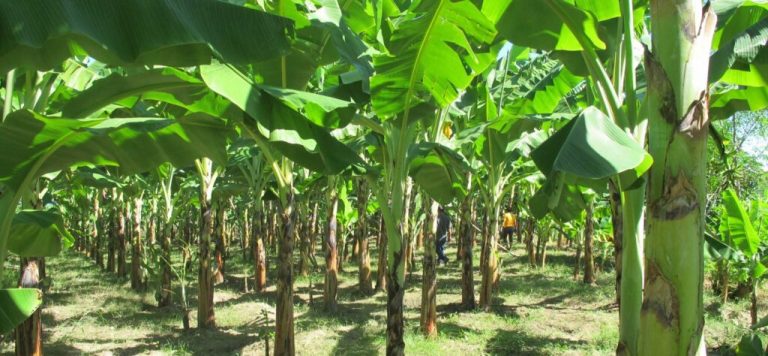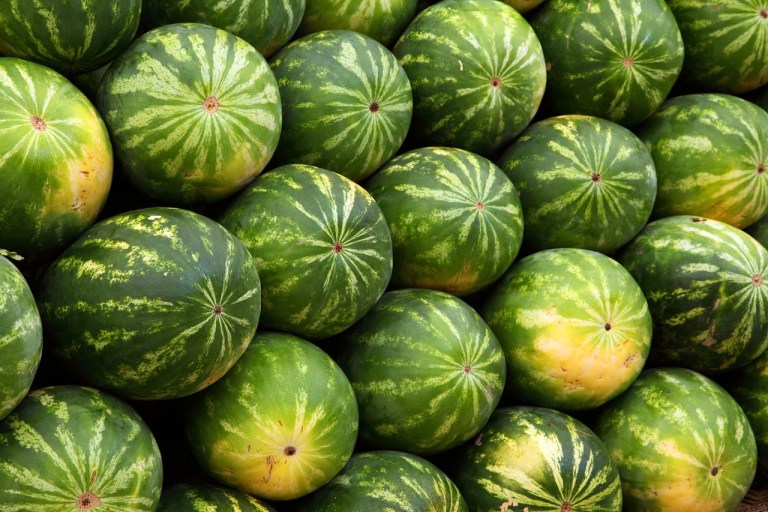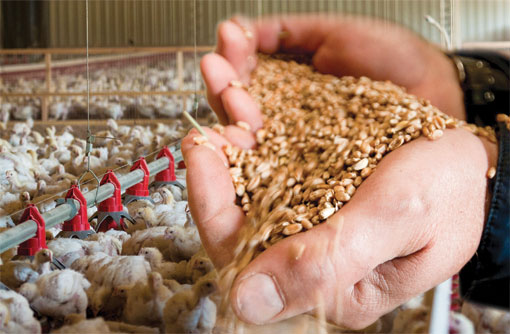Tropical Fruits Farming Business Becomes a Major Source of Income in Africa
Tropical Fruits Farming Business Becomes a Major Source of Income in Africa: Africa is blessed with fertile soil, thus farming has been their native way to combat hunger and poverty for a very long time. Recently, one of the profound ways, people from the African region are using to survive is Tropical Fruits Farming Business. Tropical fruits are a group of fruits that grow primarily in tropical and subtropical regions around the world. These areas typically have warm and humid climates, perfect for growing and cultivating this delicious and diverse fruit. Tropical fruits are known for their unique taste, bright colours and high nutritional value. These are enjoyed all over the world, not only locally, but as an exotic treat in other parts of the world.
Demand for fruits is increasing both locally and globally as millions of people around the world seek healthier and more organic foods.
Aside from the millions of fruits we eat in our African homes, many of us do not know that large quantities of bananas, pineapples, mangoes and several other tropical fruits are shipped every week to Europe, the Middle East and America.
Africa has the unique advantage of benefiting from a highly lucrative market for tropical fruits that grow abundantly on the African continent.
This article reviews tropical fruit businesses and introduces entrepreneurs who have already tapped into the potential of their fruit growing business in Africa to achieve success. It also comes with a very detailed manual that reveals all the technical details to start growing fruit and successfully grow it…
Why is the potential of the African tropical fruit market so huge?
My research has identified three reasons why Africa’s future in the tropical fruit business is so bright.
Here they are…
1. Africa has a strong geographic advantage
More than 70% of the fruits consumed on earth are harvested in the tropics, so they are also called “tropical fruits”.
Most of our important continents are in the tropics. The region enjoys year-round sunshine and the perfect climate for fruit to grow and flourish.
As a result, Africa remains one of the world’s largest producers of some of the world’s most popular fruits, including citrus, pineapple and bananas.
Many countries in Africa consume much of their fruit locally, even though our continent has great potential for fruit production worldwide.
Because fruit is perishable (perishes quickly) and many farmers have little access to adequate storage facilities, Africa currently exports less than 5 per cent of its annual fruit production.
As you will read later in this article, some entrepreneurs are already making the most of this bad situation and there are signs of positive change.
2. A growing demand for healthier and organic foods
As modern science understands the health benefits of eating fruits and vegetables, millions of people around the world (especially in developed countries) include some form of fruit in their daily diet.
In addition to being rich in nutrients, minerals and vitamins, fruits are now known to lower blood pressure. It reduces the risk of heart disease, stroke, and possibly some types of cancer. Reduces the risk of eye and digestive problems.
Growing awareness of fruit-rich diets in the West is one of the main reasons for the growing demand for Africa’s abundant tropical fruits. As a result, countries such as Ghana, South Africa, Côte d’Ivoire, and Kenya earn millions of dollars each year from fruit exports to Europe, the Middle East, and the United States.
According to the World Health Organization, millions of people around the world still die prematurely from diseases linked to inadequate fruit consumption. Although sad, this shows that demand for African tropical fruits is experiencing promising and lucrative growth now and in the future as more people add the fruit to their diets.
3. A rapidly growing fruit juice industry
Did you know that Nigeria alone imports over $140 million worth of orange concentrate each year for local fruit juice production? The global market for fruit and vegetable juices is growing rapidly and is expected to exceed 70 billion liters by 2017.
This rapid growth is driven by an increasing consumer preference for health drinks (such as fruit juices) over soft drinks (such as carbonated beverages such as Coke and Pepsi). There is also a growing demand for organic, superfruit, 100% natural fruit juices without sweeteners or preservatives.
This means that producers will need more fresh fruit to make a cup of juice in the near future.
Africa is becoming a huge supplier due to the abundance of fruits grown on the continent as more producers buy fruit to produce more juice and meet the growing demand. Additional demand from fruit juice producers will enable farmers across Africa to process their harvest into a non-perishable concentrate, reducing spoilage and generating more revenue.
The mango section of this article has an interesting story (and a short video) about a Sierra Leone-based company that buys raw mangoes from the local community and processes them into a concentrate for making fruit juice. Please be sure to check…
It’s time to meet the fruits!
Now that we know why the market potential for African tropical fruits is huge and growing, it’s time to meet some of our top-selling exotic fruits that have achieved worldwide celebrity status for their taste, high nutritional content and value.
Here they are…
#1 – Pineapples
Pineapple is a very popular and commonly consumed fruit in many parts of Africa. It is the second most important crop after bananas.
Africa’s tropical climate and soils are perfect for pineapples, but few countries on the continent produce pineapples on a large scale. Ghana and Côte d’Ivoire are Africa’s largest exporters, generating more than US$50 million annually from pineapples sold to Europe.
In other major producing countries such as Nigeria, more than 95 percent of the pineapple harvested is either eaten locally or is wasted (due to lack of storage facilities) and very little is exported.
While selling pineapples locally can bring in a lot of money, entrepreneurs can earn up to three to five times more by exporting this fruit.
According to FAO’s latest statistics (2011), Latin America and Southeast Asia currently dominate the international market for pineapples, with countries such as the Philippines, Brazil, Costa Rica, Thailand and Indonesia among the world’s top five producers.
In fact, 90% of the world’s raw pineapple demand comes from his 12 countries: USA, France, Japan, Belgium, Italy, Germany, Canada, Spain, UK, South Korea, Netherlands and Singapore. (Source: UNCTAD)
Like all the other tropical fruits discussed in this article, pineapple grows and thrives in many parts of sub-Saharan Africa where soils and tropical climates are ideal for pineapples. They don’t need a lot of water and can survive on very little soil.
Pineapples have long, tough leaves that harness the power of the sun to provide the plant with all the nutrients and water it needs. Best of all, pineapples are extremely fast-growing and require very little maintenance once planted.
His 4 minute video “The Pineapple Story” to watch is about Blue Skies Products Limited, one of the few companies in Sub-Saharan Africa profitable from the harvesting and processing of locally grown pineapples. Ghana-based
Blue Skies purchases pineapples harvested from local communities, much of which is processed into fresh pineapple chunks, juices and concentrates. These products are exported to Europe where fresh and exotic tropical fruits such as pineapples are in great taste and demand.
This video shows the sequence of activities as pineapples are transported from the farm where they are grown and harvested, to the packer, to the export terminal bound for Europe.
It is important to note that he has over 100 varieties of pineapple, but only six of his varieties are popular in commercial production.
These commercial varieties are preferred because they ripen faster, contain more sugar and vitamins, and often have a longer shelf life (which is very important, as pineapple is a perishable commodity).
If you’re interested in farming pineapples, we found these interesting resources on the internet that will help to further your knowledge on the subject:
- Market Trends for Pineapple (An international market survey) by USAID
- Commodity Profile for Pineapple by the UN Conference on Trade and Development (UNCTAD)
- Growing Pineapples by Tropical Permaculture
- Pineapple Production Manual for farmer who prefer to grow organic pineapples.
#2 – Mangoes
Mangoes (native to Asia) are grown in over 90 countries around the world, but thrive in many parts of tropical Africa. Mangoes are the most consumed tropical fruits in the world, along with bananas, and he is one of the most commonly grown fruits in the tropics.
Mangoes are highly nutritious and rich in minerals, fiber and vitamins and are used in a variety of juices, sauces, salads and desserts around the world.
Mango has over 100 varieties of his, some grown and harvested in many African countries. Nigeria remains Africa’s largest fruit producer (followed by Kenya, Egypt and Madagascar), but nearly all of the annual harvest is either eaten locally or rots as waste.
India, whose national fruit is the mango, is the world’s largest producer and exporter. Other important exporters are China, Mexico, Thailand and the Philippines.
Just as most business opportunities are overlooked across Africa, some entrepreneurs are starting to act on Africa’s enormous potential as a mango producer.
Africa Felix Juice is a Sierra Leone-based company that produces juice concentrates from mangoes grown and harvested throughout the country. The company buys mangoes from more than 1,000 smallholder farmers in Sierra Leone for $250-300 per harvest, far higher than the $15 they would earn if they sold the same fruit at local markets.
Africa Felix Juice collects these mangoes and transports them to their processing facility where they are processed (sorted, washed and crushed) into concentrated juice, a key ingredient in fruit juice production.
By purchasing fruit from small farmers, the company creates value from the millions of mangoes that rot and end up in landfills each year.
CNN introduced the company in the short video below. The mango juice concentrate produced by Africa Felix Juice is mainly exported to Europe. These concentrates will be the first major exports from Sierra Leone since the highly devastating civil war ended almost a decade ago.
A major challenge for the mango business is that mangoes are a seasonal fruit and their prices tend to fall due to market glut during the harvest season.
African mango growers face several other problems, including pests and diseases, poor orchard management, post-harvest losses, and limited access to hybrids and quality planting materials.
In fact, fruit flies pose the greatest threat to mango production in West, Central and East Africa, recently leading to export bans on certain fruits (including mangoes) to the United States and the European Union. (Source: Daily Graphic).
If you are interested in growing mangoes, I have found the following interesting resources on the web to help increase your knowledge on the subject.
- Mango Production Training Manual by the Research Institute of Organic Agriculture.
- Manual for Mango Producers by the Philippine Department of Agriculture.
- Growing Mangoes by Tropical Permaculture
- Commodity Profile for Mango by the UN Conference on Trade and Development (UNCTAD)
#3 – Bananas
Banana is arguably the most popular tropical and exotic fruit.
According to a recent article in New Scientist, bananas are his fourth most important food crop in the world after rice, wheat and corn. It is also the most harvested and eaten fruit in the world. More than 1,000 varieties are grown in more than 150 countries around the world.
In many parts of Africa, especially West, Central and East Africa, bananas are commonly eaten and have important cultural and medicinal value. In fact, countries such as Uganda, Burundi and Rwanda consume up to 45 kilograms per person per year. Banana consumption rate is the highest in the world!
Bananas are most commonly consumed as ripe fruits (table bananas), with varieties such as Cavendish, Red Banana, Apple Banana and Gros Michel used in desserts and juices. Other seeds, such as plantains (also called plantains), are boiled or roasted and eaten.
Banana wine and banana beer are also common products of this world-famous fruit. Bananas, especially cooking and dessert bananas (table bananas), are widely consumed in Africa and provide a livelihood for many people.
According to UNCTAD, the international trade in bananas has tripled from the 1970s to today. However, banana export markets are still dominated by countries in Latin America, the Caribbean and Southeast Asia. In Africa, more than 90 percent of the bananas harvested are consumed locally, and exports are not widespread except for a few countries.
The banana success story in this article is about Deus Murinde, a Ugandan banana planter who owns perhaps the largest banana plantation in all of East Africa.
Deus, unable to find his job after studying botany and zoology at Makerere University, returned to his hometown and joined his mother’s small banana business.
Currently, on his farm he harvests up to 50 bunches of bananas (“matuke” as they are commonly known in East Africa) a day, and in local markets he sells for nearly $40. On Saturdays, the main market day, Deus typically sells up to $1,000 worth of bananas.
If you are interested in growing bananas, I found an interesting resource on his web that will help you increase your knowledge on this subject:
- Banana Production Training Manual by the Research Institute of Organic Agriculture.
- Banana Production by the Institute for Tropical and Subtropical crops
- Growing Bananas by Tropical Permaculture
#4 – Citrus
Citrus fruits are commonly understood to be a group of popular fruits such as sweet oranges, limes, grapefruits, lemons and tangerines (also known as tangerines). Citrus fruits are widely grown in tropical and subtropical countries of Africa.
While fresh citrus for market is preferably produced in subtropical climates (e.g. South Africa) and Mediterranean climates (e.g. Tunisia, Egypt, Morocco, Libya), citrus for juice production is mainly used in tropical climates, where sugar content can be high.
African countries like South Africa generate up to R6 billion (about US$600 million) each year from fresh citrus exports to the US and Europe.
In most other parts of our continent, citrus fruits (particularly oranges) are used to make concentrates for making fruit juices. These fruits are so rich in vitamin C that they are also used in the pharmaceutical industry to make dietary supplements.
Like the other fruits discussed in this article, most of the oranges produced in many parts of Africa are either consumed locally or left as waste, and few, if any, are exported to generate high income.
If you want to learn how to grow citrus, this citrus production guide contains a wealth of detailed information to guide you through the entire process, from planting and orchard management to harvesting and marketing.
Are you interested in fruit growing and exporting business in Africa?
If you include other popular tropical fruits such as papaya (aka “paw paw”), guavas, avocados and cashews (both fruits and nuts), this article will take you hours to read.
Lesser-known fruits such as passion fruit (commonly grown in many parts of East Africa) are growing in demand and importance worldwide.
The purpose of this article is to look at the colorful and juicy diamonds that may be hanging in your garden.
Africa’s potential in fruit production is relatively untapped compared to the rest of Latin America and Asia, which currently dominate the international tropical fruit market. It is very important to look for opportunities to capitalize on the growing demand and lucrative tropical fruit market both domestically and internationally.
I hope you found this article helpful. If you have experience growing tropical fruit, or know a little more about it, I’m sure many of you reading this would love to learn from you.







